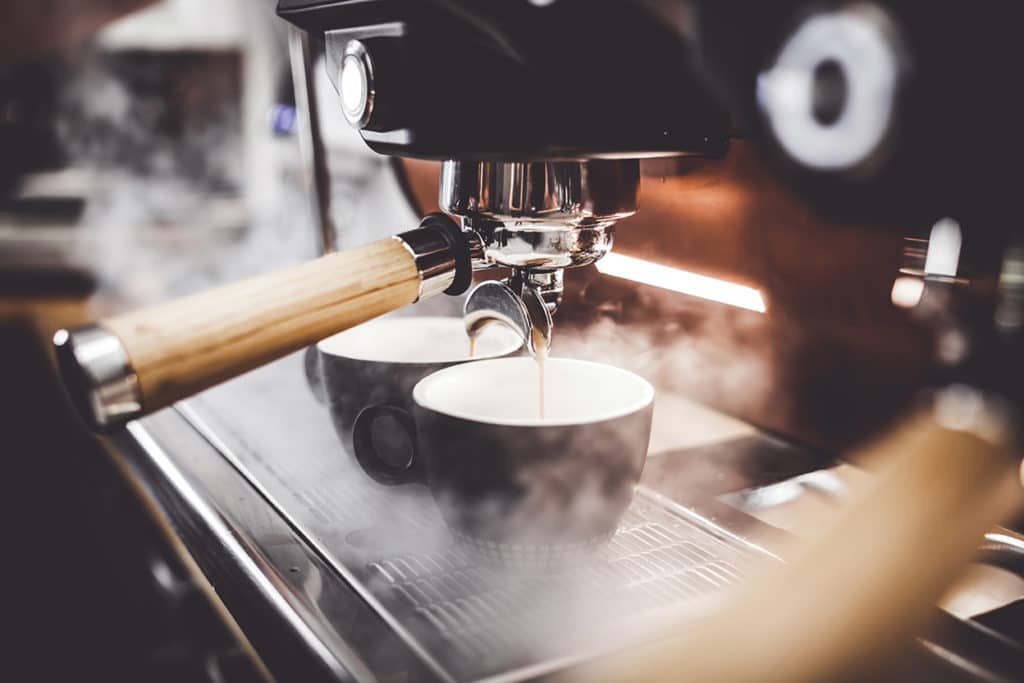Overdose of caffeine
Coffee is healthy. The myths such as “coffee nerves, makes you pale and sick” weakens long since disproved. Coffee consumption in large quantities may, however, may have consequences that are not desirable.
Table of contents
Overdose Of Coffee? The most important facts
- Theoretically, it can come with a extreme coffee consumption to a drug Overdose. To do this, you would have to take more than a gram of caffeine, this means that you would have to drink at least 12 cups of Espresso in a row.
- Seven or eight cups a day can have a positive effect on the body.
- An Overdose of caffeine leads to heart palpitations, motor problems, nerve irritation, sleep disturbance and can trigger nightmares and perception disorders.
- The bitter substances in coffee may lead in the case of recording in high quantities, is that they do not spoil the stomach.
- Children under 12 years of age has a caffeine is harmful, the same goes for the fetus in the womb.

To high coffee consumption – Symptoms
Among medical professionals, approximately four cups of coffee per day are considered healthy, even larger quantities, showed in recent studies, with very positive effects. Each person reacts differently to the in the coffee contained caffeine. If your coffee consumption is too high, the following symptoms to recognize:
- Irritated nerves, anxiety, nervousness or increased Anxiety, in addition, Hypersensitivity to external stimuli.
- Tachycardia, caused by a faster heart rate.
- Shortness of breath and shortness of breath, driven by an increase in blood pressure.
- Eyes twitch.
- Migraine and headache.
- Stomach complaints as a result of an Overdose of the coffee bitters.
Too much caffeine
Coffee contains caffeine and in the same way as other caffeinated drinks, energy drinks or black tea, can cause the wax-makers in the Excess side effects. These include sleep disturbances, headaches, nervousness or problems in the gastro-intestinal tract. Tremors and visual disturbances also occur. Also possible is a loss of fine motor skills. Were also described bizarre nightmares, thoughts, carousel, and the thoughts of the lawn. These symptoms occur especially in people that take no or very little caffeine.

Caffeine addiction
Who takes constantly and over a long period of caffeine in high doses, may develop an Addiction. With yourself you can determine this simply by eliminating caffeine. It appearances now comes to withdrawal, you will notice that you have to do it with Addiction. Typical symptoms of withdrawal in caffeine:
- Headache,
- Nausea,
- Listlessness,
- Loss of energy,
- chronic fatigue.
- You are tempted to react, to feel miserable and depressive moods are possible.
These withdrawal symptoms begin 12 to 24 hours after the last caffeine boost, and to keep up to nine days.
As it comes to caffeine addiction?
Caffeine is similar to adenosine and block its receptors. Adenosine, as a component of ribonucleic acid RNA protects the body from exhaustion, the caffeine does, which is why it comes with increased dosage irritability. With increasing caffeine consumption, the body reacts to the lack of adenosine and additional receptors to adenosine. Therefore, consumers need to take more caffeine to produce the same effect.
Caffeine overdose
Of an Overdose, we talk of a gram of caffeine. In the worst case, this triggers a circulatory collapse. This caffeine-filled syringe once a good Energy: It stimulates the release of stress hormones, the heart beats faster, blood pressure rises. We remember it as improved concentration and increased performance. Up to approximately 400 milligrams of this is completely in order.
As a guideline applies: A Cup of Espresso contains 80 milligrams of caffeine. In order to reach in the vicinity of an Overdose, you would have to drink at least twelve cups of espresso in a row.
Otherwise it looks in children under 12 years of age and in Pregnant women from – Caffeine penetrates the placenta and can interfere with the growth of the fetus. In children is generally not recommended of caffeine in Pregnant women is not more than 200 mm are recommended grams per day.
What to do?
In the case of an Overdose of caffeine, you should seek medical help. You can only relieve the symptoms, because caffeine is running as a fat-soluble substance by the body. You cabbage dishes food, as these contain enzymes that accelerate the utilization of the caffeine.

Coffee and sugar
Coffee is extremely healthy, but it can result in conjunction with other materials quite quickly to unwanted side effects. One of these substances is sugar. Sugar and caffeine together is a short-term energy kick. Because caffeine stimulates blood circulation, the sugar, the faster the organism. The combination of coffee and sugar drives the blood sugar level high and this is only good if we consume energy quickly, for example sports performance.
Coffee and alcohol
Coffee and alcohol result in a brisantere blend as coffee and sugar. Especially Affected a consider yourself wrong. You are just as drunk as if you soak the alcohol without coffee, but the caffeine does not cause you to perceive your noise. This is the result of a study by the Temple University in Philadelphia.
If you drink alcohol, remember you therefore fast, that you are drunk because you are tired. If the caffeine now to be awake, confuse being awake with sobriety. So bring increasingly dangerous situations, because they believe, for example, to be able to drive a car.
In the study, the researchers mice caffeine and pure alcohol – gifts; once separated, once. Under the influence of Ethanol, the mice were less anxious and moving more. Under the influence of caffeine, they were anxious and moved less. With the combination of the two, they were less anxious, even cocky. The results are clear: caffeine is the effect of alcohol, but alcohol does not weaken the effect of caffeine.
Coffee and drugs
Coffee enhances the effect of Paracetamol and Ibuprofen. You should drink not coffee, if a Product contains caffeine. Then it can cause the above described consequences of an Overdose of caffeine, to flutter, particularly of the heart. Some antibiotics prevent the body caffeine breaks down. Gyrase inhibitors can cause in combination with coffee sleep disorders. Many Doctors say generally: If you are taking medication, you should refrain from coffee, unless this is the specific Drug demonstrated as safe.

No coffee in the case of iron deficiency
If you suffer from iron deficiency, you should not drink coffee. The contained tanning agents cause the iron to be running the body. This also applies to tannins in black tea and Mate tea.
Coffee consumption and life expectancy
Latest studies see moderate coffee consumption as a contribution to a healthy diet. Coffee drinkers have a lower risk of death than non-coffee drinkers. This shows a large-scale study by the National Institute of Health in Rockville on nearly 500,000 Britons.
Even in larger quantities of coffee increases, therefore, the life expectancy. With the amount of coffee the risk of death decreased even in the case of a Cup to eight percent, up to seven cups a day even at 16 per cent regardless of genetic polymorphisms and of a slow or fast caffeine metabolism. In quantities of about seven to eight cups per day when you approach, eventually, an Overdose of caffeine and can have negative consequences. (Dr. Utz Anhalt)
